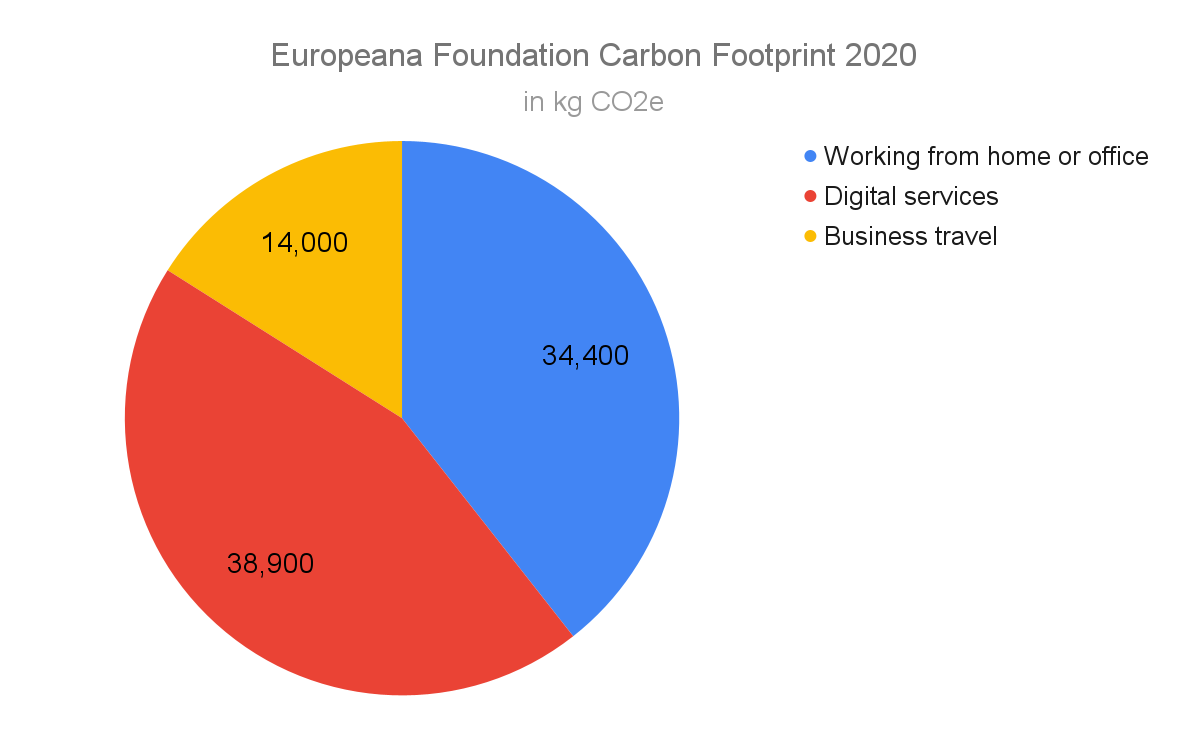How we conducted our research
To gain an overview of the Europeana Foundation’s carbon use in 2020, we investigated our footprint from our entire value chain. This included our digital services and our corporate operations: working from home and at the office, and our business travel. In cases where that data wasn’t available, we relied on secondary sources, including industry averages. Some exclusions due to lack of data included staff’s daily commutes, manufacturing or disposal of computer devices, and overnight stays during business trips.
Our footprint
From our work, we estimated that the Europeana Foundation’s carbon footprint in 2020 was 87,300 kg CO2e. In everyday terms, according to the United States Environmental Protection Agency calculator, our total 2020 carbon footprint is equivalent to the energy use of 11 homes for one year, the consumption of 202 barrels of oil, or charging 10,619,403 smartphones.
We were encouraged to see that through use of renewable energy sources, we avoided around 65,000 kg CO2e of emissions and we compensated around 1,460 kg worth of CO2e through carbon offsetting. Thanks to the renewable electricity used at our offices in The Hague and by one of our hosting providers, our total footprint in 2020 is 69% lower compared to the baseline year 2018, but higher than the rough estimate for 2019.
We found that the largest contributors to our 2020 carbon footprint were computer servers hosted by our other hosting providers and the workspace heating. Due to the ongoing COVID-19 pandemic, the footprint of business travel was low in 2020.




